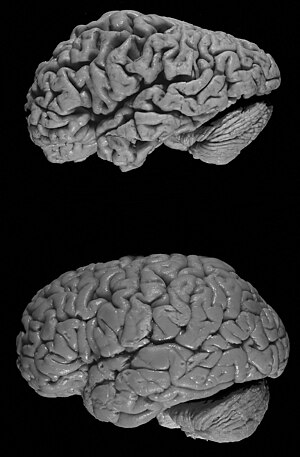 Image via Wikipedia
Image via Wikipedia Image via Wikipedia
Image via Wikipedia Image by epSos.de via Flickr
Image by epSos.de via FlickrOn the other hand, other research says that the most important factor in forgetting is confusing, not decaying. http://www.sciencedaily.com/releases/2008/12/081212153204.htm Basically, that similar memories confuse the brain into forgetting information more than the idea that a memory gets crowded out or overwritten by other memories. This second article indicates that a better memory of something would be had by separating it from similar things in the brain.
 Image via Wikipedia
Image via WikipediaLoss of short term memory to some degree is normal for everyone, and especially of those that are elderly. Loss of long term memory is not normal, and may indicate disease processes such as Dementia of the Alzheimer's Type, aka Alzheimer's disease. Remembering where the car is parked is bad, waking up and forgetting where the bathroom in your house is will be really bad.

No comments:
Post a Comment